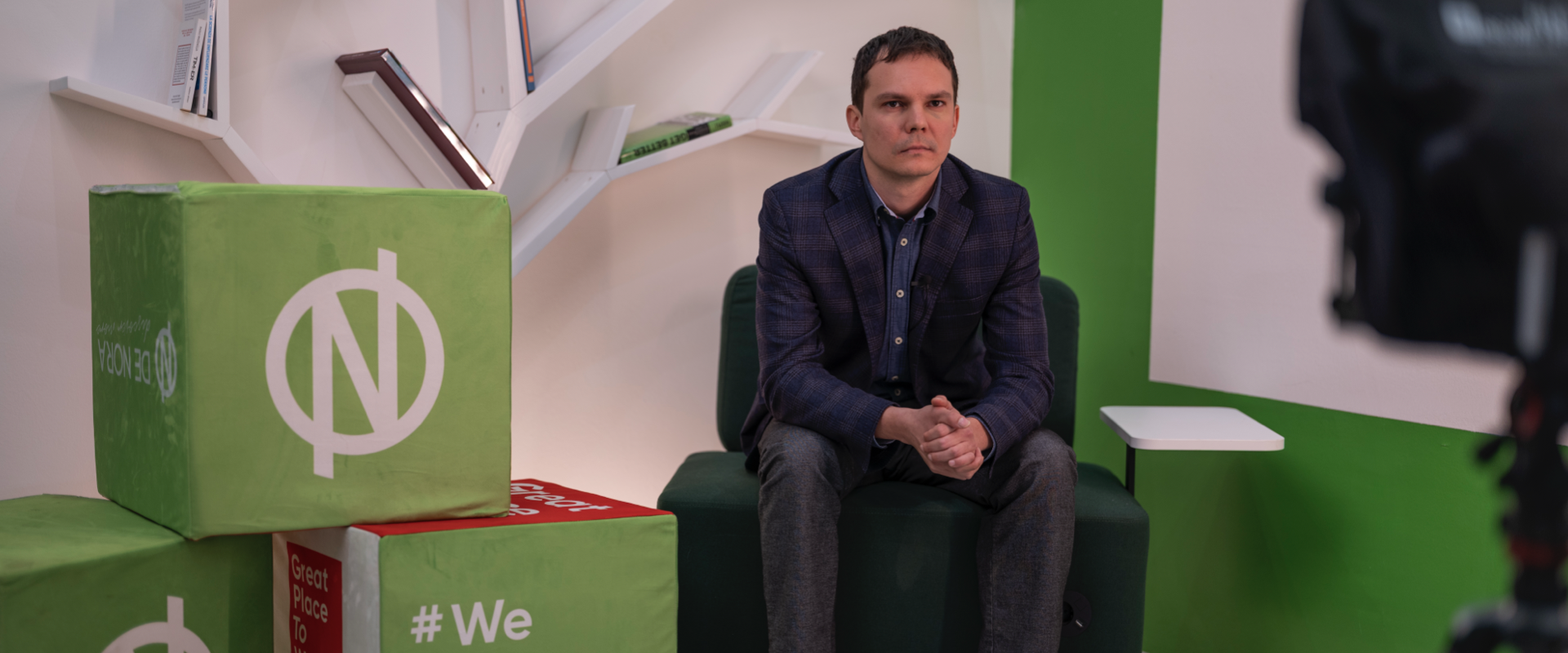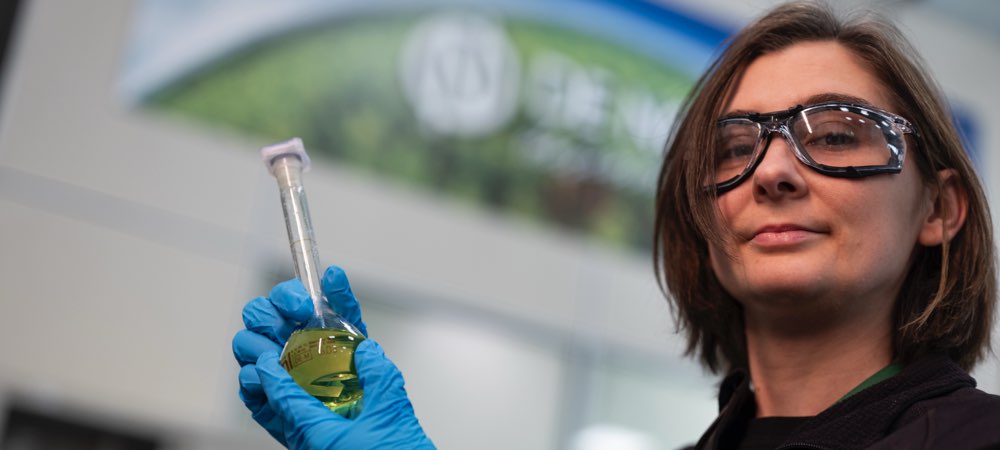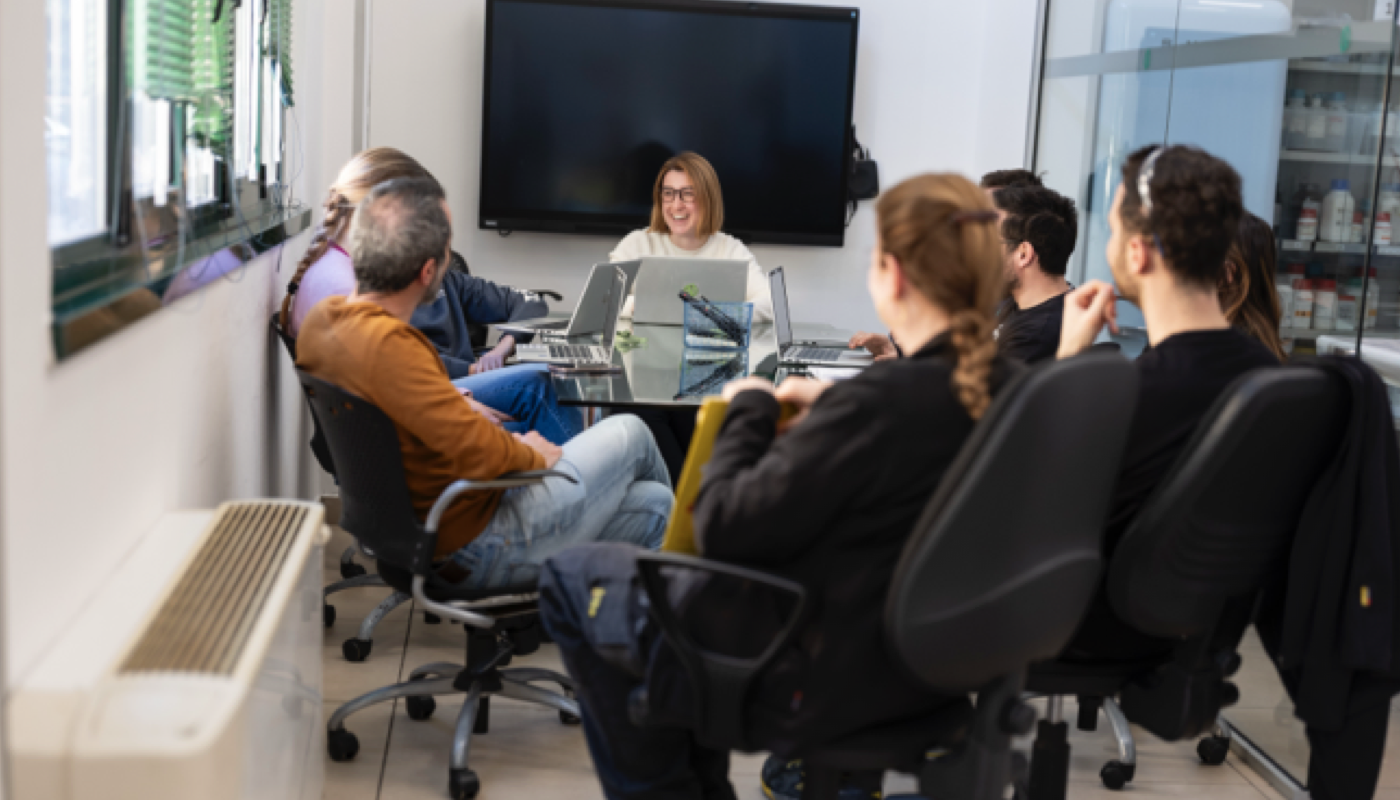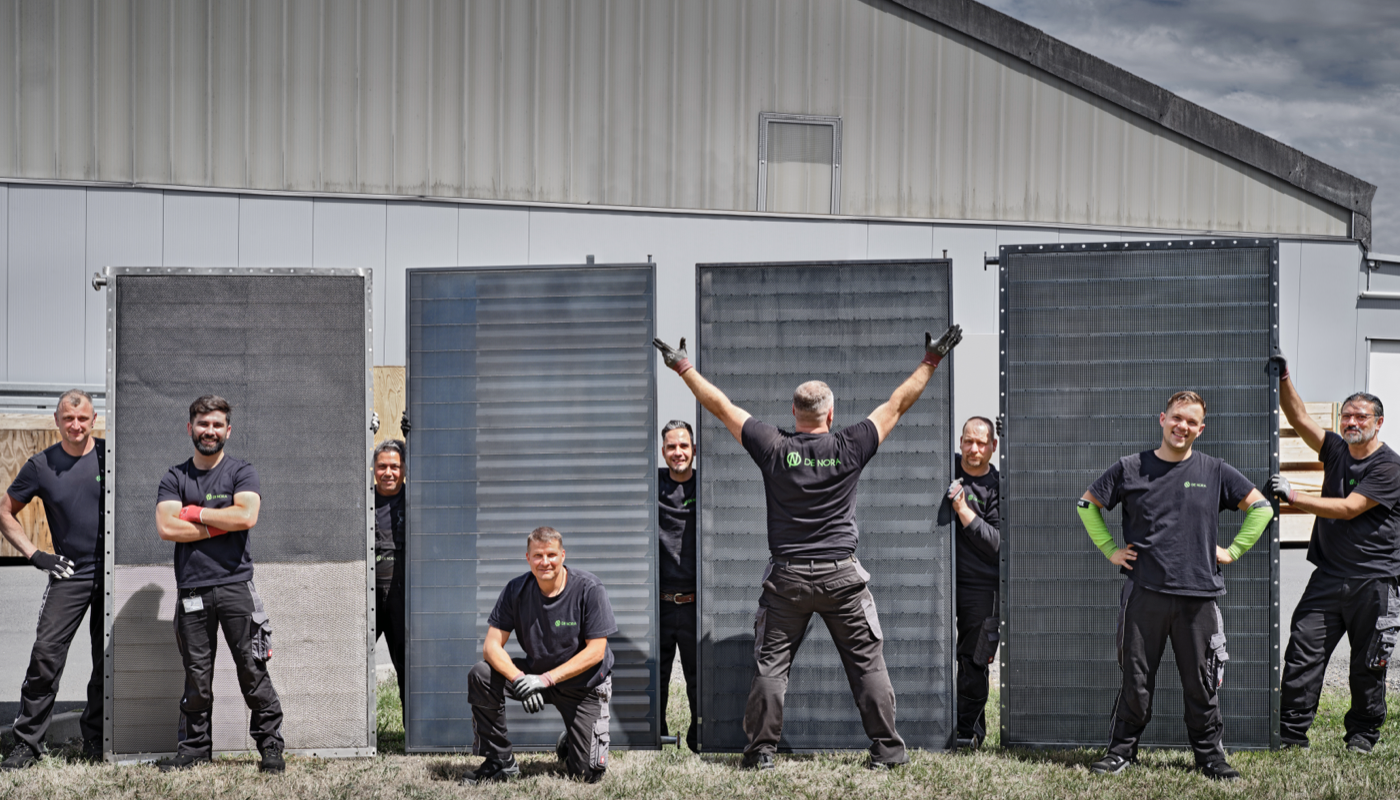Agility can take many forms within a company, but all share a common goal: promoting innovative and flexible ways of working that enhance effectiveness, boost productivity, and support a results-driven mindset.
At De Nora, this agile culture is reflected in one of the company’s most important statements — its mission: “Agility and green technologies for value creation.”
But how did the company come to define a shared vision of agility, and how is it put into practice in everyday work? Let’s find out with Andrea Guglielmetti, Organization, Processes, Transformation, Analytics & Workforce Director at De Nora.
 WORKING AT DE NORA
WORKING AT DE NORA
Join De Nora and work in an environment where flexibility and strategic thinking are rewarded. Submit your application.
1. How Did the Mission “Agility and Green Technologies for Value Creation” Originate, and How Is It Reflected in Daily Work?
At De Nora, agility didn’t just become a part of the company’s mission, it evolved into a core element of our daily work.
To make agility an integral part of our culture, we’ve committed to deeply understanding its meaning and how to transform it into a core value of our mission.
For us, flexibility means being able to adapt to change effectively — without compromising our identity.
Being a large, but not oversized, company is a real advantage, as it allows us to adapt the concept of flexibility to internal and local needs, making it a truly applicable work mindset.
Our journey toward defining what an agile culture means to us began with two simple questions: “What is agility?” and “How can we work in an agile way?”
To answer them, we created a shared survey and used it as the foundation for our Agility Manifesto, which to this day defines what agility means at De Nora and outlines its seven key values:
- Collaboration and Collective Intelligence
- Trust and Respect
- Shared Purpose and Commitment
- Entrepreneurship, flexibility, and adaptability to changes
- Lean approach
- CLEARER communication
- Unlimited partnership (including Customers & Suppliers)
After identifying the values that define our approach to agility, the goal was to turn them into a concrete operational methodology — one that could guide the company toward a more flexible way of working, grounded in agile principles and practices.
One of the practices that has most transformed our way of working is the MVP, or Minimum Viable Product. This approach encourages our people to organize activities in multiple stages, developing processes, products, and initiatives in a streamlined way with intermediate steps and timely feedback. Rather than waiting to complete an entire project before sharing it, teams gather input early from customers, colleagues, and managers.

This approach allows us to promptly test effectiveness and identify the right direction, enabling us to address critical issues early before they grow into bigger problems.
Thanks to this method, we optimize time and energy, ultimately improving the final outcome.
2. Can you give us an example of when agility was crucial in responding to a change or seizing an opportunity?
One example where agility has proven effective in improving De Nora’s processes is the management of our three main “people” campaigns: assigning targets, assessing performance and competences — a crucial process for the growth of all our colleagues.
In the past, when we hadn’t yet embraced the culture of agility, campaigns were managed centrally.
This approach required an almost exclusively operational commitment on the part of local offices, which naturally translated into a sort of administrative task imposed from above, reducing their engagement and causing significant delays in the execution of the campaigns.
We decided to reverse the roles by directly assigning local managers the responsibility for communicating and executing the campaign, making them the true protagonists of the process and helping them recognize the real value of the assessments.
Providing greater freedom of communication and increased empowerment to local teams boosted collective engagement and enabled us, as a company, to embody the value of “shared Purpose and Commitment” highlighting the importance of fostering independence and accountability among our people.
3. What tools or processes do you use to stay flexible and quickly adapt to market changes?
At De Nora, we constantly seek ways to promote flexibility, fully aware that it is closely tied to needs that may evolve over time.

To ensure we remain responsive and adaptable to change, we have implemented an internal innovation process led by the Innovation department, which fosters a shared culture of change.
One of the tools available to all employees to foster innovation is the Galileo platform. Here, everyone, from blue-collar to white-collar workers, regardless of seniority, can submit ideas to improve any aspect of the company, even if it falls outside their direct responsibilities.
Proposals are regularly reviewed and evaluated. If considered valuable to our agile culture, they become part of our strategy, and the person who submitted them becomes an active advocate for their implementation.
Equally important is our commitment to looking beyond our organization and engaging with external partners in roundtables and industry forums, crucial channels for identifying opportunities for change that we might otherwise miss.
Our agile culture is a value we have worked hard to build: a value that, thanks to our collective commitment, has become a shared mindset benefiting everyone, regardless of their position.
 WORKING AT DE NORA
WORKING AT DE NORA




